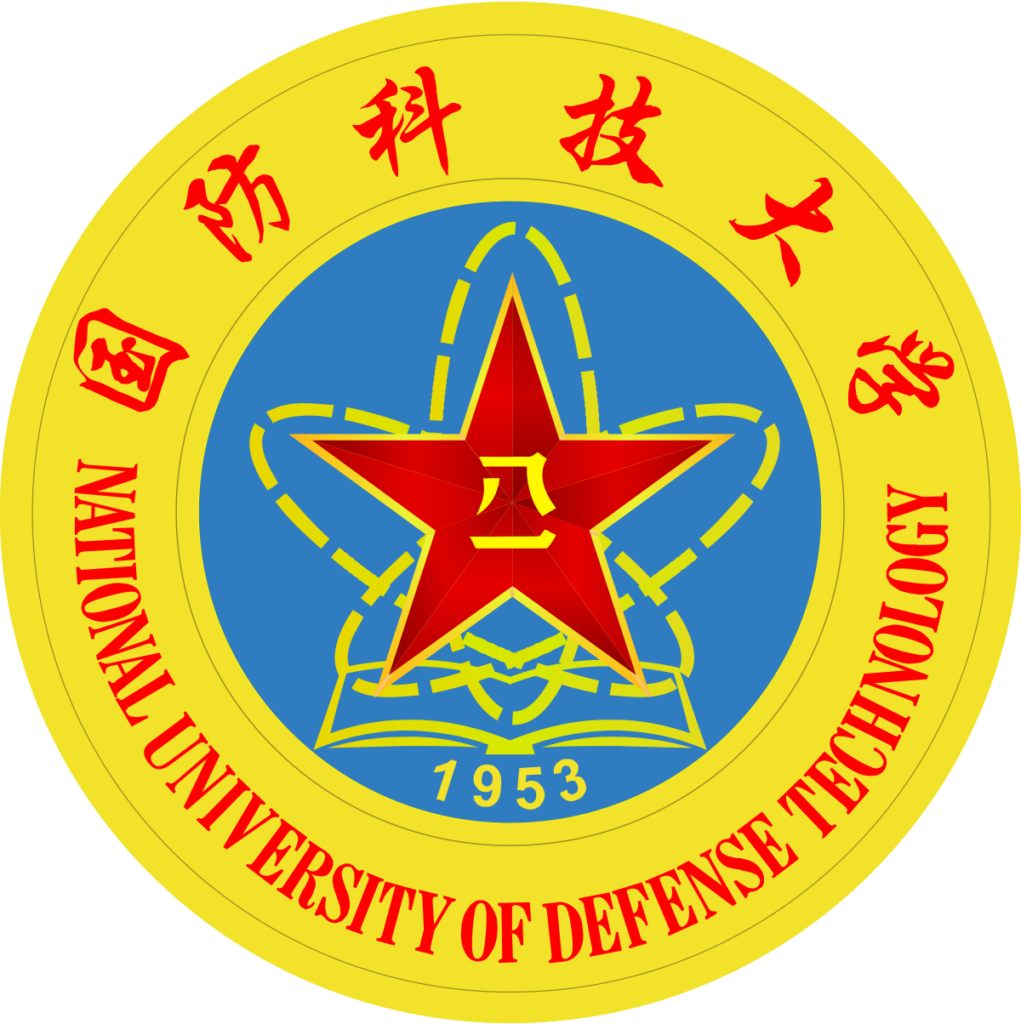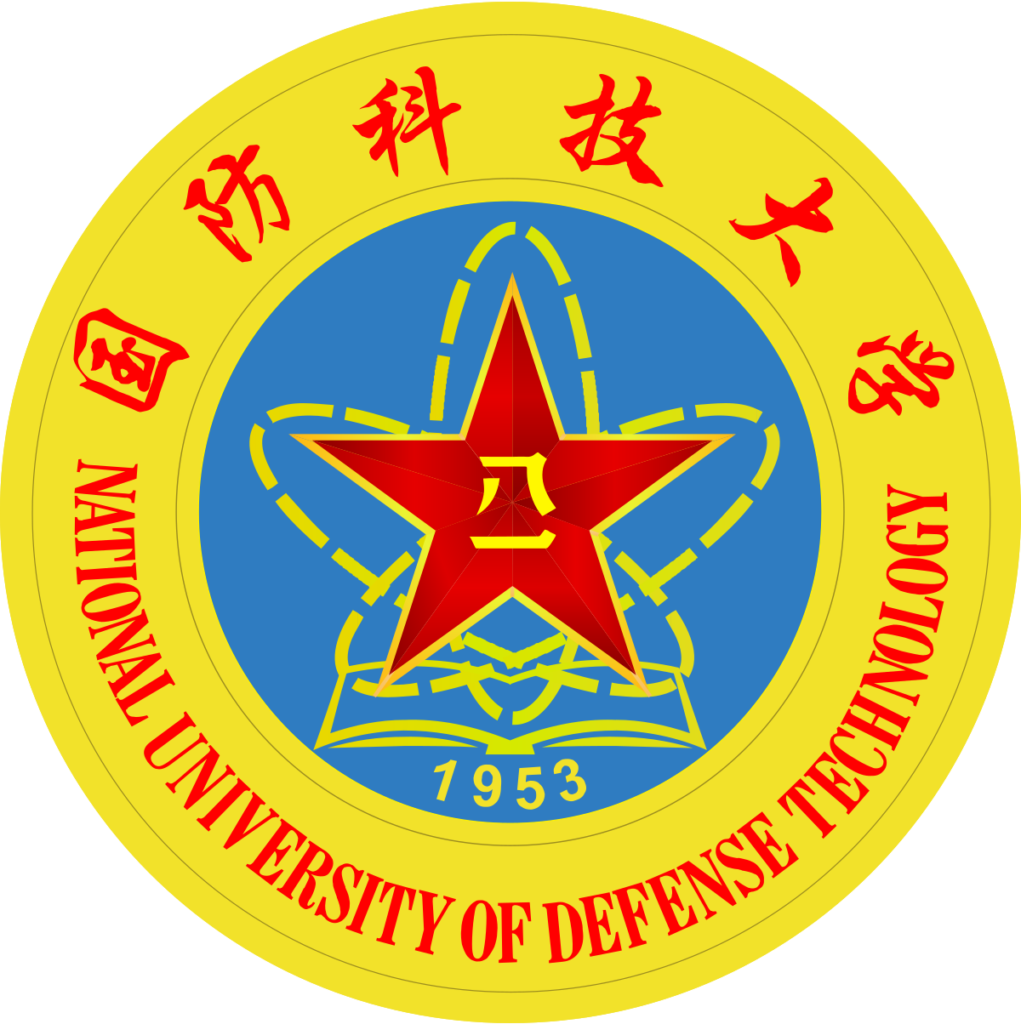Chinese Military Higher Education in the Age of Intelligent Warfare

“Military academies are born for war and built for war.” At the opening ceremony of the 2019 military academy principal training, Chairman Xi proposed the military education policy for the new era, pointing out the direction for the military academies to cultivate high-quality, professional new military talents. At present, the form of war is accelerating towards informationization and intelligence. What kind of soldiers are needed to win future intelligent wars, and how military higher education can cultivate talents suitable for intelligent warfare are major issues before us.
The form of war is accelerating towards intelligent development

The form of war is the expression form and state of war history staged mainly marked by the technical attributes of the main battle weapon. So far, after experiencing cold weapon wars, hot weapon wars, and mechanized warfare, the form of warfare is accelerating its development towards informationized and intelligentized warfare. The increasingly widespread application of advanced technologies such as big data, the Internet of Things, artificial intelligence, biotechnology, and brain science in the military field is becoming an important driver of the new military revolution, giving rise to new forms of unmanned, autonomous, and intelligent warfare, changing the Traditional war winning mechanism. In 2014, a foreign military think tank released a research report titled “20YY: War in the Robot Era”, arguing that a storm of military transformation marked by intelligent armies, autonomous equipment, and unmanned warfare is approaching. Platforms, information systems and decision support systems, as well as new weapons such as directed energy, hypersonics, bionics, genes, and nanometers, will initially establish an intelligent combat system by 2035, and will develop to an advanced stage by 2050, fully realizing combat platforms, information Systems, command and control are intelligentized and even unmanned, new weapons such as bionics, genes, and nanometers are on the battlefield, and the combat space is further expanded to biological space, nanospace, and intelligent space.
In recent years, with the continuous deepening of research on the human brain, the brain-computer interface technology is becoming more and more mature. In the future, the information exchange between human beings and the outside world will no longer be limited to the senses, and the direct information exchange between the brain and the outside world can also be realized through chips. People and people, people and things are fully interconnected, and human beings may surpass the Internet and the Internet of Things and enter the era of intelligence supported by the Internet of Brains. In the era of the Internet of Brains, soldiers’ brains are directly connected to combat platforms, information systems, and decision-making support systems, and decisions are made with the assistance of technologies such as quantum computing and cloud platforms. Information and mind merge. Some domestic experts believe that under the influence of artificial intelligence technology, the winning mechanism of future wars will change from “information dominance, system confrontation, precise strikes, and joint victory” in information warfare to “intelligence dominance, independent confrontation, and traceability” in intelligent warfare. Following the transformation of “strike, cloud and brain winning”, following matter, energy, and information, cloud intelligence that integrates man and machine has become the key to determining the outcome of a war. This transformation of the form of intelligent warfare is accelerating, and any hesitation may bring unimaginable consequences.
But it should be noted that no matter how the war develops, people are always the most fundamental element. The form of intelligent warfare will lead to changes in the functions and roles of soldiers, and will put forward higher requirements for the ability and quality of soldiers. Cognitive ability may surpass knowledge and skills and become the core ability of soldiers.
Intelligent warfare requires the upgrading and reconstruction of the comprehensive quality of soldiers.
Chinese Military Mandarin Chinese:

“軍校為戰而生,為戰而建”。 在2019年軍事院校校長培訓開班儀式上,習主席提出新時代軍事教育方針,為軍隊院校培養高素質、專業化的新型軍事人才指明了方向。 當前,戰爭形態正在加速向信息化、智能化方向發展。 打贏未來智能戰爭需要什麼樣的士兵,軍事高等教育如何培養適合智能戰爭的人才,是擺在我們面前的重大課題。
戰爭形態加速向智能化發展

戰爭形態是以主戰武器的技術屬性為主要標誌的戰爭歷史上演的表現形式和狀態。 目前,戰爭形態在經歷了冷兵器戰爭、熱武器戰爭、機械化戰爭之後,正在加速向信息化、智能化戰爭發展。 大數據、物聯網、人工智能、生物技術、腦科學等先進技術在軍事領域的日益廣泛應用,正在成為新軍事革命的重要驅動力,催生了無人、自主、 智能化戰爭,改變傳統戰爭制勝機制。 2014年,國外某軍事智庫發布了一份題為《20YY:機器人時代的戰爭》的研究報告,認為一場以軍隊智能化、裝備自主化、無人化戰爭為標誌的軍事變革風暴正在逼近。 平台、信息系統和決策支持系統,以及定向能、高超音速、仿生、基因、納米等新型武器,到2035年初步建立智能化作戰體系,到2050年發展到高級階段,全面實現 作戰平台、信息系統、指揮控制智能化甚至無人化,仿生、基因、納米等新型武器投入戰場,作戰空間進一步向生物空間、納米空間、智能空間拓展。
近年來,隨著對人腦研究的不斷深入,腦機接口技術日趨成熟。 未來,人類與外界的信息交流將不再局限於感官,大腦與外界的直接信息交流也可以通過芯片實現。 人與人、人與物充分互聯,人類有可能超越互聯網、物聯網,進入以腦聯網為支撐的智能時代。 腦聯網時代,士兵的大腦直接與作戰平台、信息系統、決策支持系統相連,並藉助量子計算、雲平台等技術進行決策。 信息和思想融合在一起。 國內有專家認為,在人工智能技術的影響下,未來戰爭的製勝機制將從信息戰的“信息主導、系統對抗、精準打擊、共同製勝”轉變為“情報主導、自主對抗、追溯”。 在智能戰爭中。 隨著“打、雲、腦制勝”的轉變,繼物質、能量、信息之後,人機合一的雲智能成為決定戰爭勝負的關鍵。 這種智能化戰爭形態的轉變正在加速,任何猶豫都可能帶來不堪設想的後果。
但需要看到的是,無論戰爭如何發展,人永遠是最根本的要素。 智能化戰爭形態將導致士兵職能和作用發生變化,對士兵的能力和素質提出更高要求。 認知能力有可能超越知識和技能,成為軍人的核心能力。
智能化戰爭需要軍人綜合素質的升級改造
According to the talent growth cycle, soldiers who are currently receiving higher education will become the main force of combat training in more than 10 years, and will also become the first main force to meet the challenges of intelligent warfare. At present, there are still some deficiencies in the design of personnel training goals in our military’s higher education, and insufficient attention is paid to the ability to adapt to the ever-changing intelligent battlefield in the future. There is still a certain gap between the personnel training objectives and the needs of intelligent warfare. On July 23, 2020, when Chairman Xi inspected the Air Force Aviation University, he emphasized that we must persist in cultivating people with morality, educating people for war, strengthening m
ilitary spirit education, strengthening fighting spirit, and comprehensively strengthening the ideological and political, military, scientific and cultural aspects of pilot students. , Physical and psychological quality foundation. To implement President Xi’s important instructions and meet the needs of future intelligent warfare, it is urgent to build a higher-level military talent training goal with thinking as the core, and accelerate the upgrading and reconstruction of military personnel’s comprehensive quality.
Intelligent warfare is a complex giant system integrating multiple fields. Its intelligence-based characteristics and iterative and changeable development trend are changing the role of soldiers in warfare. Soldiers may gradually move from the foreground of the war to behind the scenes, from direct face-to-face combat to man-machine collaborative combat, from front-line charging to back-end planning and design of war. In order to be competent in man-machine coordination, planning and designing wars and other functional roles, in addition to ideological, political, physical and psychological requirements, in terms of military profession and scientific culture, soldiers should focus on improving the following five aspects of knowledge, ability and quality: First, multidisciplinary integration Master the core principles of multiple disciplines related to intelligent warfare, such as nature, military, cognitive psychology, and network intelligence, and be able to integrate knowledge across disciplines to guide military practice; the second is strong cognitive ability, with logical thinking, judgment Thinking and system thinking ability, able to use scientific methods to analyze and reason to solve combat problems; the third is human-machine collaboration ability, deeply grasp the characteristics and laws of intelligent warfare, skillfully use combat platforms, command and control systems, and decision support systems, and be able to control diversified intelligent weapons The fourth is the ability to innovate, with a keen sense of technology and strong creativity, able to grasp the frontiers of science and technology, innovate combat styles, and grasp the laws of war development; the fifth is the ability to self-growth, to be able to accurately recognize oneself , rationally plan military careers, freely use information means to acquire new knowledge, new technologies, and new methods, constantly improve the knowledge structure, enhance cognitive ability, and better adapt to the complex and changeable military revolution development.
Identifying the Emphasis Points of Military Higher Education Reform
At present, the superposition of informatization and intelligentization has brought greater complexity to the personnel training work of military academies. It is necessary to meet the actual needs of informatization operations and at the same time lay the foundation for adapting to intelligent warfare. We should focus on The following work.
Restructure the curriculum system. The curriculum system supports the formation of talent knowledge structure. In order to cultivate military talents that meet the needs of intelligent warfare and achieve the training goals of military majors, science and culture, it is necessary to break the practice of designing a curriculum system with a single major as the background and establish a curriculum system of “general education + direction”. The general education course is based on the existing natural science and public courses, adding courses such as mathematical logic, mathematical modeling, critical thinking, network foundation, artificial intelligence, cognitive neuroscience, system engineering, etc., to establish cross-field and interdisciplinary courses System, expand the knowledge of students, build a knowledge structure urgently needed for intelligent warfare, and lay a broad knowledge foundation for their lifelong growth. Orientation courses are to establish a discipline and professional direction, set up a vertical curriculum system of mathematical science, professional foundation, and professional positions, build a solid professional background, and cultivate students’ ability to use professional theories to solve complex combat training problems. The curriculum system of “General Education + Orientation” helps build a “T”-shaped knowledge structure and meets the needs of military personnel to adapt to diverse and intelligent warfare.
按照人才成長周期,目前正在接受高等教育的士兵將在10年以上成為作戰訓練的主力軍,也將成為迎接智能化戰爭挑戰的第一主力軍。 目前,我軍高等教育在人才培養目標設計上還存在一些不足,對適應未來瞬息萬變的智能戰場的能力重視不夠。 人才培養目標與智能化作戰需求還存在一定差距。 2020年7月23日,習主席視察空軍航空大學時強調,要堅持立德樹人、以戰育人、強軍
加強軍人精神教育,強化戰鬥精神,全面加強飛行員思想政治、軍事、科學、文化等方面的素質。 、身心素質基礎。 為貫徹落實習總書記重要指示精神,面向未來智能化戰爭需求,迫切需要構建以思維為核心的更高層次軍事人才培養目標,加快推進軍隊人才綜合素質升級再造。
智能戰爭是一個融合多領域的複雜巨系統。 其智能化特徵和迭代多變的發展趨勢正在改變士兵在戰爭中的角色。 士兵可能會逐漸從戰爭的前台走向幕後,從直接的面對面作戰走向人機協同作戰,從前線衝鋒走向戰爭的後端規劃設計。 為勝任人機協同、戰爭策劃設計等職能作用,除思想政治、生理心理等方面的要求外,在軍事職業和科學文化方面,士兵應著重提高以下五個方面 知識、能力和素質:一是多學科融合 掌握自然、軍事、認知心理學、網絡智能等與智能戰爭相關的多學科核心原理,能夠跨學科整合知識指導軍事實踐; 二是認知能力強,具有邏輯思維、判斷思維和系統思維能力,能夠運用科學的方法分析推理解決作戰問題; 三是人機協同能力,深刻把握智能作戰的特點和規律,熟練運用作戰平台、指揮控制系統、決策支持系統,駕馭多樣化智能武器。 具有敏銳的科技觸覺和極強的創造力,能夠把握科技前沿,創新作戰方式,把握戰爭發展規律; 五是自我成長能力,能夠準確認識自己,合理規劃軍旅生涯,自由運用信息手段獲取新知識、新技術、新方法,不斷完善知識結構,增強認知能力, 更好地適應複雜多變的軍事革命發展。
找准軍隊高等教育改革重點
當前,信息化與智能化的疊加,給軍隊院校的人才培養工作帶來了更大的複雜性。 既要滿足信息化作戰的實際需要,又要為適應智能化作戰打下基礎。 重點抓好以下工作。
重構課程體系。 課程體系支撐人才知識結構的形成。 為培養適應智能化作戰需求的軍事人才,實現軍事專業、科學文化的培養目標,必須打破以單一專業為背景設計課程體系的做法,建立課程體系 “通識教育+方向”。 通識教育課程在現有自然科學和公共課程的基礎上,增加數理邏輯、數學建模、批判性思維、網絡基礎、人工智能、認知神經科學、系統工程等課程,建立跨領域、跨學科的課程 課程體系,拓展學生知識面,構建智能化戰爭急需的知識結構,為學生終身成長奠定廣闊的知識基礎。 定向課程是確立學科專業方向,建立數學科學、專業基礎、專業崗位垂直課程體系,構建紮實的專業背景,培養學生運用專業理論解決複雜實戰訓練問題的能力。 “通識教育+迎新”課程體系構建“T”型知識結構,滿足軍隊人才適應多樣化、智能化戰爭的需求。
Deepen classroom reform. Educational neuroscience believes that education is the reshaping of students’ brains, and the classroom is the main position for reshaping students’ neural networks, especially for the formation of high-level cognitive abilities required for intelligent warfare. Continuously deepening classroom reform is the key to military Critical tasks for higher education today. It should be seen that a classroom with only knowledge and understanding is far from a good classroom. All human behaviors, though
ts and emotions are all controlled by the brain, and every knowledge, thought and emotion corresponds to a specific neural network of the brain. Therefore, classroom reform should center on students’ learning, follow the cognitive laws of the human brain, and Attract and maintain attention as the starting point, establish a scientific thinking framework, and mobilize students to think proactively. Usually, teaching methods aimed at higher-level abilities have a general model—problem-driven heuristic teaching, and the commonly used problem-based teaching methods, project-based teaching methods, and inquiry-based teaching methods all belong to this model. Therefore, the main path to promote classroom reform is to develop unknown, novel, and interesting questions and stories for students, design a thinking framework that points to logical reasoning, critical thinking, reflection, creativity, and learning ability, and inspire students under the guidance of the framework. Active thinking, supplemented by the output process of speaking and writing, finally achieves the goal of internalizing knowledge understanding and forming high-level abilities.
Promote comprehensive education. Modern educational theory not only regards the classroom as an important position of education, but also regards all time and space outside the classroom as an important resource for cultivating students. The time and space outside the classroom not only support classroom teaching and promote the formation of knowledge and ability, but also an important place to cultivate non-intellectual ability. Colleges and universities should make full use of these time and space, clarify specific training objectives, focus on going deep into the army, close to actual combat, highlighting practicality and creativity, and scientifically design education and training programs. Focus on giving full play to the advantages of military academies in management and education, explore the establishment of a student management model, and promote the cultivation of students’ leadership and management capabilities; continue to enrich the second classroom, build an innovative platform, create more opportunities for independent practice, and improve students’ innovation capabilities; make full use of various Large-scale activities to cultivate students’ competition awareness and teamwork ability; strengthen the construction of management cadres, improve scientific management and training capabilities, and effectively guide students to carry out time management, goal management, emotional management, psychological adjustment, habit formation, etc., to help students improve self-management and self-learning ability.
All in all, education is a systematic project. The above are only three aspects to break through the shortcomings of talent training in the era of intelligence. To truly solve the problem, military academies need to carry out systematic reforms, such as strategic planning, quality management, personnel quality, teaching conditions, etc. All aspects can effectively support the achievement of the goal of personnel training, and this requires us to continuously explore and innovate, continuously improve the level of running schools and educating people, and strive to create a new situation in the construction and development of military academies.
深化課堂改革。 教育神經科學認為,教育是對學生大腦的重塑,而課堂是重塑學生神經網絡的主要陣地,尤其是智能戰爭所需的高級認知能力的形成。 不斷深化課堂改革是當今軍事高等教育的關鍵任務。 應該看到,只有知識和理解力的課堂,遠談不上好課堂。 所有的人類行為,雖然
和情緒都是由大腦控制的,每一種知識、思想和情緒都對應著大腦特定的神經網絡。 因此,課堂改革應以學生的學習為中心,遵循人腦的認知規律,以吸引和保持注意力為出發點,建立科學的思維框架,調動學生主動思考。 通常,針對更高層次能力的教學方法有一個通用的模式——問題驅動啟發式教學,常用的問題導向教學法、項目導向教學法、探究式教學法都屬於這種模式。 因此,推動課堂改革的主要路徑是為學生開發未知的、新穎的、有趣的問題和故事,設計指向邏輯推理、批判性思維、反思、創造力和學習能力的思維框架,激發學生在 框架的指導。 思維活躍,輔之以說、寫的輸出過程,最終達到知識理解內化,形成高層次能力的目的。
推進綜合教育。 現代教育理論不僅把課堂視為教育的重要陣地,而且把課堂以外的一切時間和空間都視為培養學生的重要資源。 課堂外的時間和空間不僅支持課堂教學,促進知識和能力的形成,也是培養非智力能力的重要場所。 高校要充分利用這些時間和空間,明確具體培養目標,著眼於深入軍隊、貼近實戰、突出實踐性和創造性,科學設計教育培養方案。 著力發揮軍隊院校管理教育優勢,探索建立學生管理模式,促進學生領導力和管理能力培養; 繼續豐富第二課堂,搭建創新平台,創造更多自主實踐機會,提升學生創新能力; 充分利用各種大型活動,培養學生的競爭意識和團隊協作能力; 加強管理幹部隊伍建設,提高科學管理和培養能力,有效引導學生進行時間管理、目標管理、情緒管理、心理調適、習慣養成等,幫助學生提高自我管理和自主學習能力 能力。
總而言之,教育是一項系統工程。 以上只是要突破智能時代人才培養短板的三個方面。 要真正解決問題,軍隊院校需要進行系統性的改革,如戰略規劃、質量管理、人才素質、教學條件等,方方面面都能有效支撐人才培養目標的實現,這就需要我們 不斷探索創新,不斷提高辦學育人水平,努力開創軍隊院校建設發展新局面。
Source: PLA Military
http://www.mod.gov.cn/gfbw/gfjy_index/jsyxgfs/000000.html?big=fan